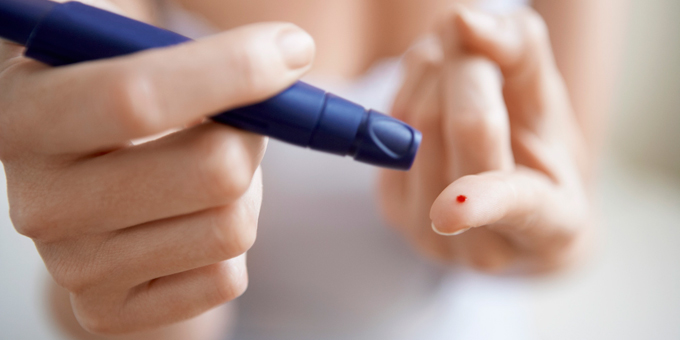
Make no mistake about it, type 2 diabetes is reversible through proper nutrition. This is not opinion, belief or hope, it is a reality that is supported by the preponderance of the scientific evidence, and a truth that I have witnessed firsthand with my own clients. The following 10 true or false questions will put an end to common misconceptions, and get you started on the right path. The answers may surprise you.
True or False
- Losing weight and reversing diabetes is all about food portion control and calorie restriction.
This is FALSE. You can eat more and still lose weight. Too many people are often advised to simply cut back on calories from certain foods as opposed to changing the type of food that they consume. Let’s face it, we want to be told that we can keep eating the foods that we are addicted to as long as we do so in “moderation.” The truth, however, is that if we eliminate animal protein and switch to a low fat, whole food, plant-based diet we can eat as much as we want and still achieve our goals. We do NOT need to count calories or to limit our portions. Weight loss through calorie restriction is not a solution that works in the long term. I tell my clients that once they make the transition to eating the right kind of food, they can literally create daily buffets of delicious recipes, feast to their heart’s content, eat more than ever before, and still lose weight. Studies have confirmed that with the same level of physical activity, plant-based eaters can eat more volume of food, up to 30% more calories, and still be much slimmer than people on a typical North American diet.123
Interestingly, the same results were noted in lab studies conducted with rodents. It turns out that rats that are fed substantially reduced amounts of animal protein consume more overall calories but manage to burn off the extra calories due to a faster metabolism.4 These rats also want to exercise more and have lower cholesterol levels.5 The results are very consistent with what I’ve noticed with my own lab rats (dear human clients) who feel more energy and a greater desire to exercise once they switch to a proper plant-based diet. Their cholesterol and blood glucose levels also drop drastically within weeks of making the transition.
And so there you have it- the freedom to consume a larger volume of food, a faster metabolism at rest so that you can burn off excess calories as body heat instead of storing them as fat, and a lot more energy that gives you the desire to increase your physical activity and exercise. I remember the wife of one of my clients telling me that instead of feeling sleepy after every meal, her husband now feels like bouncing off the walls! I didn’t inquire further- some things are best kept private between husband and wife. - The traditional “diabetes diet” you were put on is effective.
That depends on your definition of effective. If the end goal is to reverse diabetes then the answer is FALSE. Your medical professional will ask you to cut down on calories in order to lose some weight, and will prescribe a diet that is low in sugar and carbohydrates. This may help a little but it’s rarely sufficient, and most people will still find themselves on a cocktail of medications despite adding exercise to their daily routine. My video, The Leading Cause of Death In Canada,6 outlines the predictable path that people with diabetes take through our disease care system, suffering from one complication after another as their health deteriorates over time. Type 2 diabetes is a lifestyle choice, and the choice is whether you are content with just slowing down the disease, or if you want to do what it takes to reverse it. - A low-carb diet is best for managing diabetes.
FALSE. The first problem with the typical “diabetes diet” is that it fools people into believing that carbohydrates cause diabetes. This is far from the truth. In fact, cultures around the world that consume the most complex carbohydrates, such as grains, starchy vegetables and legumes, have the lowest rates of diabetes. We’ve known this since 1938 when Dr. Harold P. Himsworth, a British scientist best known for his medical research on diabetes, reported the following:

“…there is a great deal of evidence suggesting that the incidence of diabetes mellitus is high in countries and under circumstances in which low carbohydrate diets are eaten, whilst the incidence is low where and when high carbohydrate diets prevail. In explanation of these findings it has previously been suggested that, whilst heredity was the factor predisposing to the disease, the habitual ingestion of a low carbohydrate diet was the factor which precipitated diabetes mellitus.”7
In short, complex carbohydrates do not cause diabetes, they prevent it- and even help to reverse it. This brings us to our next true or false question… - There is lots of scientific evidence to support the fact that type 2 diabetes is reversible in just a few weeks.
Absolutely TRUE. Decades of research has taught us that you can reverse type 2 diabetes in 3 weeks by switching to a low-fat, whole food plant-based diet. Professor James Anderson, a leading expert on diabetes, conducted a study where he placed 25 type 2 diabetics on a high-fibre, high carbohydrate, low-fat diet.8 This was a very high quality study conducted in a hospital setting. After just 21 days on the diet 24 of the 25 patients no longer required insulin to control their blood sugar. The same was done with type 1 diabetics and they were able to reduce their insulin by 40%- an incredible result seeing that it was once considered impossible for diet to have any impact on type 1 patients. Another study at the Pritikin Center yielded similar results- 34 of 40 patients were able to stop all of their medications after 26 days on a plant-based diet and exercise program.9 A study conducted at the University of California had 140 men out of 197 discontinue all of their medications following a 3-week diet change.10 Many more studies of this nature have been conducted and the results have been very consistent.
I read these studies with lots of interest, however, it is when I saw my own clients achieve the same results that I was truly fascinated. My fascination was short lived as I quickly turned my attention to why more people do not know that type 2 diabetes is easily reversible. This is when I began learning about the business of diabetes. - Diabetes is a multi-billion dollar industry.
Unfortunately TRUE. My lecture video The Leading Cause of Death in Canada tackles this issue in detail, showing that pharmaceutical companies and health authorities have invested very little interest in eradicating this disease, as well as other diseases that are nutritionally controllable.6 Patients are told they have to be on drugs for a lifetime, helping some of the richest companies on earth increase their profits. Diabetes has become a gold rush and the mainstream medical establishment offers no cure because it has no interest in treating the root cause of the disease. - You just need to become vegan in order to reverse type 2 diabetes.
FALSE. Vegan is a lifestyle, not a diet. Vegans have respect for all creatures on earth and do not tolerate animal cruelty. Some people do choose to become vegan for health reasons, and vegans do tend to be healthier than meat eaters. However, vegan foods are not necessarily healthy. After all, potato chips and candy are vegan, so are chocolate bars, sodas, and vegetable oils. And while it is true that animal protein is strongly linked to diabetes, there is more to a healthy diet than just eliminating animal-derived foods. The diet that supports and maintains a healthy body is a whole food plant-based diet, one that is ideally rich in living foods such as sprouts and microgreens. A vegan diet that is high in fat, sugar, and processed foods is not one that will support the body’s ability to heal itself. - Grains, legumes, nuts and seeds should always be sprouted.
TRUE. I’ve had several clients that were vegan for over 20 years, and their diet consisted of mainly whole unprocessed foods, but it is only when they began incorporating sprouts and microgreens that they began to notice substantial improvements in their health. So it’s not just the type of food we eat, but also how we choose to prepare it. Sprouting allows you to benefit from enzymes, antioxidants, better digestion and absorption of an elevated level of nutrients. Numerous studies have shown that sprouts help fight diabetes, reduce cardiovascular risk, lower blood pressure, fight cancer, and protect against fatty liver disease. You can read more about the benefits of sprouting here. - Beet and carrot juice, fruit juice, honey, agave, and all other natural sources of sugar are ok. It’s only the processed white sugar that we must avoid.
FALSE. The first mistake that people often make when cutting down on animal protein is that they replace those calories with sugar (lots of fruits) and fat (too many nuts). A high sugar and high fat diet is not one that promotes good health. In fact, it can be quite damaging. To transition properly, the bulk of your energy must come from sprouted grains and legumes, and fruit should represent no more than 10-15% of your diet. Ideally, we would only consume local, properly ripened whole fruits that are in season. Honey should be regarded as another word for sugar because it is over 99% sugar. Maple and agave syrup are not any better and can be as harmful as pure white sugar, yet many health care professionals still recommend them. Dr. Mehmet Oz, who once promoted agave on his television program, has now changed his position after properly looking at the research – here is what he wrote on his website:
– here is what he wrote on his website:
“Over the past few months, I’ve become increasingly concerned about a sweetener that I’ve recommended on my show in the past. After careful consideration of the available research, today I’m asking you to eliminate agave from your kitchen and your diet. Here’s why.
We used to think that because agave has a low-glycemic index and doesn’t spike your blood sugar like regular sugar does, it would be a good alternative for diabetics. But it turns out that although agave doesn’t contain a lot of glucose, it contains more fructose than any other common sweetener, including high-fructose corn syrup. Initially, we thought moderate amounts of fructose weren’t unhealthy, but now we know better.” Dr. Mehmet Oz, MD11
High sugar natural juices are also a concern. Soon after buying a juicer, the first mistake that most people do for their health is to juice carrots, beets, and fruits. Just one cup of beet juice contains a whopping 26g of sugar- this means that the calories in beet juice are over 80% sugar- it’s sugar juice! A cup of carrot juice is also high enough in sugar that the Harvard School of Public Health recommends that you limit yourself to no more than one glass per day. However, if suffering from a health issue such as diabetes, it would be best to completely avoid high sugar juices. Beets and carrots are very healthy just as long as you enjoy them in their whole form. If you do juice beets, carrots, or fruits, it is best to dilute your juice with water or, ideally, with green juice that consists of micro greens and leafy greens. For example, we sometimes include a small amount of green apples in the juice fast that we prepare for our clients. Children can have more sugar than adults because their organs are still functioning well, and so you can add a bit more fruit juice in their drinks while sneaking in the leafy greens! - A high carbohydrate diet does not provide enough protein for diabetics.
FALSE. The meat and dairy industry have conducted some great marketing in order to have a monopoly on the concept of “protein foods”, when the reality is that many foods that are high in carbohydrates are also rich in protein. An article published in Diabetes Spectrum touched on this issue, noting that “people with diabetes are frequently given advice about protein that has no scientific basis.”12 I agree with this assessment.
It is time for health professionals to understand that meat is not protein. I know this sounds strange because some ideas are so ingrained in our minds, but bear with me as we examine the nutritional profile of a beef tenderloin steak: 3 ounces of this steak has 86 calories from protein and a whopping 170 calories from fat- so I wonder why we refer to it as a protein? Now let’s compare this to 100 grams of lentils which has 99 calories from protein (more than the 3 ounce steak), just 10 calories from fat, and a rich amount of beneficial complex carbohydrates. Which one sounds like the better deal? The answer is that a proper, high carbohydrate, low-fat plant-based diet easily fulfills the protein requirements of any individual, while also providing an abundance of health promoting nutrients, minus the saturated fat and cholesterol than comes attached to animal protein. - Diabetics should consume healthy fats, such as olive oil and avocados, in moderation.
FALSE. People diagnosed with diabetes and heart disease should completely avoid all concentrated plant fats (such as nuts and avocados) and added oils. Contrary to popular belief, all oils are extremely low in nutritive value. They are 100% pure fat which means they contain 9 calories per gram, more than twice that of carbohydrate or protein. More importantly, Dr. Esselstyn has taught us that, in cardiovascular patients, even so called “healthy” oils damage the innermost lining of the artery thus impeding recovery and healing.13 For patients wishing to reverse diabetes, Dr. Neal Barnard advises that oils be eliminated from the diet in order to regain as much insulin sensitivity as possible.14
The rule I give my clients regarding concentrated plant fats is quite simple: if your cholesterol is below 3.9mmol/L (150mg/dl), and you no longer have diabetes, then you can enjoy some oils and fats such as nuts and avocados, in moderation. However, for everyone else, the word “moderation” is a trap that will prevent you from achieving your health goals. Finally, for people concerned about not getting enough omega 3 fats in their diet, my video What About Fish explains why fish oils are to be avoided, and how a proper plant-based diet easily meets our omega 3 requirements.15 - Bonus question: A low fat plant-based diet is not sustainable nor is it normal. Therefore, even though you reverse type 2 diabetes and get off your meds, you will return to your previous diet and suffer once again from diabetes.
This is absolutely FALSE. It is not normal to be in a constant state of disease. We can do better. My clients that transitioned to a healthier diet have stuck with it for years, never going back to their old ways. That’s because they did it the right way. From the start, I insist that they educate themselves on what it is they are doing and how it is helping them. The more they learn the greater their commitment grows. For example, they learn about food addiction and why, even when we know better, it is still so hard to eliminate certain foods. They then apply this knowledge to overcome obstacles and take all the necessary steps to start enjoying a healthier diet. Real success is when the transition ends and eating the right foods becomes the natural, easy thing to do. On the other hand, restricting calories and controlling food portions is a plan that has not worked for the general population- it’s like asking an alcoholic to cut back to one alcoholic drink per day. It’s not sustainable.
What I propose is a real lifestyle change and, while it may be harder at first because it requires education and commitment, I believe it is the best path to take if your goal is to avoid our disease-care system- a system that has become the new “normal” in our society. Once you get your health back and feel alive in a way that you haven’t in years, you will have little inclination to return to your previous state. I imagine you have a life to enjoy without being limited by disease, and this opportunity begins with the choices that you get to make on a daily basis- and that’s the truth.
In Summary:
- Eliminate all animal-based food (this includes beef, chicken, fish, eggs, milk, cheese…)
- Replace your “meat” calories with sprouted whole grains and legumes.
- Cut back on fruits, and especially fruit juice. Do not be fooled by sugar alternatives, such as honey and agave syrup, that are as harmful as regular processed sugar.
- Eliminate all oils and concentrated fats, such as nuts and avocados, until your blood sugar is back to normal and your cholesterol level is under 3.9mmol/L (without medication). Almond milk is ok because it is diluted with water.
- Exercise- that goes without saying! And make sure to include strength training.
Marc Jaoudé
Naturopath, Health Educator
Nutrition & Exercise Specialist
REFERENCES:
- Appleby PN, Thorogood M, Mann J, et al. “Low body mass index in non-meat eaters: the possible roles of animal fat, dietary fiber, and alcohol.” Int J Obesity 22(1998):454-460.
- Levin N, Rattan J, Gilat T. “Energy intake and body weight in ovo-lacto vegetarians.” J Clin Gastroentrol. 8(1986):451-453.
- Campbell TC. “Energy balance: interpretation of data from rural China.” Toxicol Sci. 52(1999):87-94.
- Gibney MJ, and Kritchevsky D, eds. Current Topics in Nutrition and Disease, Volume 8: Animal and Vegetable Proteins in Lipid Metabolism and Atherosclerosis. New York, NY: Alan R. Liss., 1983
- Krieger E, Youngman LD, Campbell TC. “The modulation of aflatoxin (AFB1) induced preneoplastic lesions by dietary protein and voluntary exercise in Fischer 344 rats.” FASEB J. 2(1988):3304 Abs.
- Marc Jaoude. [Markito Nutrition]. (2014, 4, 28). The Leading Cause of Death in Canada [Video]. Retrieved from https://markitonutrition.com/videos/the-leading-cause-of-death-in-canada/
- Himsworth HP, and McNair Scott DB. “The relation of the hypophysis to changes in sugar tolerance and insulin sensitivity induced by changes of diet.” J. Physiol. (1938) 91, 447-458.
- Anderson JW. “Dietary fiber in nutrition management of diabetes.” In: Vahouny GV, Kritchevsky D, eds. Dietary Fiber: Basic and Clinical Aspects. New York: Plenum Press, 1986:343-360.
- Barnard RJ, Lattimore L, Holly RG, et al. “Response of non-insulin-dependent diabetic patients to an intensive program of diet and exercise.” Diabetes Care 5(1982):370-374.
- R.J. Barnard, T. Jung, and S.B. Inkeles. “Diet and exercise in the treatment of NIDDM: the need for early emphasis.” Diabetes Care 17 (1994): 1469-72.
- Oz M [Dr. Oz] “Agave: why we were wrong.” Available at: http://blog.doctoroz.com/dr-oz-blog/agave-why-we-were-wrong Last accessed: March 8th, 2015.
- Franz MJ. “Protein controversies in diabetes.” Diabetes Spectrum, Volume 13, No.3, 2000, p.132.
- Esselstyn DB, Jr. “Updating a 12-year experience with arrest and reversal therapy for coronary heart disease; An overdue requiem for palliative cardiology.” Am J Cardiol 1999; 84:339-341
- Barnard ND. (2007). Dr. Neal Barnard’s program for reversing diabetes. New York, NY: Rodale, 2007.
- Marc Jaoude. [Markito Nutrition]. (2014, 4, 28). What About Fish [Video]. Retrieved from https://markitonutrition.com/videos/what-about-fish/



I have a question regarding type 2 diabetes.
How does having high cholesterol affect diabetes complications?
Dear Arlene,
The real issue is heart disease. We do not die from high blood sugar or from high cholesterol, we die from heart disease. In fact, cardiovascular disease leading to heart attack or stroke is the leading cause of death in both men and women with diabetes. And although attempts have been made to understand the specific relationship between cholesterol and diabetes – for example, one study concluded that elevated cholesterol reduces insulin secretion- I do not find this information particularly useful for people who simply want to improve their health and avoid complications. Here is information that I do find useful:
As I mentioned earlier, diabetics should be more concerned about cardiovascular disease than about high blood sugar, and a high cholesterol score is a very strong indicator that you are on a diet that is damaging your arteries. Type 2 diabetics who have high cholesterol should have a clear understanding that they are on the path of disease that only gets worse due to the foods they eat.
What is even more dangerous is aggressively treating symptoms with drugs without making any lifestyle changes. The pharmaceutical companies have fooled the population into believing that diabetes is simply a blood sugar problem – and that the answer is medication to lower blood sugar- and that high cholesterol is simply a cholesterol problem- and the answer is to take cholesterol lowering medication. The public should be informed that high blood sugar and high cholesterol are NOT diseases- they are just the signs of disease, and taking drugs to eliminate these signs does nothing to treat the real root of the problem. People on diabetes and cholesterol lowering medications still suffer and die from cardiovascular disease along with other health issues. What’s the point of lowering blood sugar and cholesterol if you still end up with the same bad result? One of my clients is a pharmacist and he’s told me stories about how some of his customers are happy with their diabetes and cholesterol medications because, to them, it means they can keep eating unhealthy food and still be ok. This is a false sense of security, and a perfect example of removing warning signs without addressing the real disease. But it gets worse: it turns out that some diabetes drugs actually increase the risk of stroke and heart attack, and some cholesterol drugs increase the risk of diabetes. Furthermore, at least 6 studies have shown that more aggressive medical treatment to lower blood sugar leads to more weight gain, higher cholesterol and blood pressure, and more death from heart attack and stroke. The more you look into it the more you learn about this vicious cycle that we call the disease-care system.
In short, high blood sugar, high cholesterol and high blood pressure are simply the body’s responses (or defense mechanisms) to underlying issues, and the way to actually reverse the real disease is through proper nutrition and exercise. The great news- and what we can call a three for one special- is that the same type of diet that will lower your cholesterol and blood pressure will also reverse type 2 diabetes, and when that happens you will know it’s because your body was able to truly heal itself.
My video the Leading Cause of Death in Canada, and my article the Truth About Cholesterol, cover more information and details about what I just discussed.
Thank you.